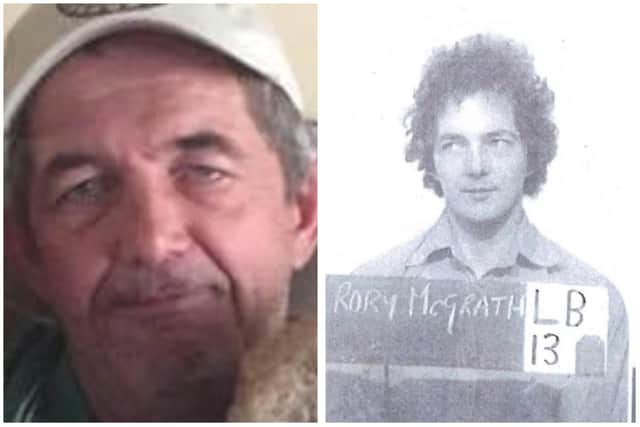Judge questions why 43-year-old Leeds pub assault case was brought to court, but police defend decision
and live on Freeview channel 276
Rory McGrath was flown from his home in New York to the UK to stand trial over the attack outside The Miners pub in Garforth in March 1980.
The 64-year-old was charged with actual bodily harm and held on remand in HMP Leeds since his arrival in July last year.
Advertisement
Hide AdAdvertisement
Hide AdThe jury returned a verdict of not guilty at Leeds Crown Court this afternoon after a week-long trial. Judge Robin Mairs ordered he be released immediately.


He then turned to the jury, thanked them but said he “did not know why” the case was brought after so many years, and added: “We have worse things to deal with, if I can put it that way.”
A fight had broken out on Aberford Road in Garforth between men on the night of March 28, 1980, and a patrolling officer intervened. He was then kicked to the ground.
Four men were convicted of the attack in 1980, but Mr McGrath fled the country, first moving to Dublin, then to America in 1986. He became a US citizen in 2002.
Advertisement
Hide AdAdvertisement
Hide AdHe said that heavily-armed US Marshals surrounded his home to arrest him before he was eventually flown back to Britain.
After Mr McGrath’s acquittal, West Yorkshire Police said: “Victims of crime rightly expect the police to make all possible efforts to track down wanted suspects, regardless of the passage of time.
“This outstanding warrant was fully reviewed and assessed at the time that a local neighbourhood policing team officer became aware and revisited it in 2015.
“The Crown Prosecution Service was consulted and confirmed that the case met the evidential threshold and was still in the public interest to pursue. Although the defendant has now been found not guilty following a trial, we maintain that our continued pursuit of this outstanding warrant was appropriate.
“This whole sequence of events came about from the defendant deliberately avoiding the criminal justice process by failing to attend court at the time he was charged.”